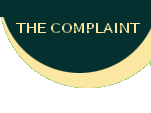| |
THE COMPLAINT URIAH J. FIELDS FILED WITH THE CHARLOTTESVILLE POLICE DEPARTMENT
By Uriah J. Fields
I decided to make public my filing of a complaint with the Charlottesville Police Department after I attended a community-police relations meeting on August 27, 2014 at the Ebenezer Baptist Church in Charlottesville. The meeting, organized by local activist Wes Bellamy and Ebenezer Baptist Church pastor Lehman Bates was spurred by the fatal shooting on August 9, 2014 in Ferguson, Missouri of unarmed 18-year-old Michael Brown, who is black, by white police officer Darren Wilson. The major question addressed during the meeting was "Can what happened in Ferguson, Missouri happen in Charlotteville, Virginia?"
Law enforcement officers participating in the meeting were: Charlottesville Chief of Police Timothy J. Longo Sr., Charlottesville Sheriff James Brown and Albemarle County Deputy Chief Ron Lantz. Each of them responded to comments made by community participants and commented their plans for improving community-police relations. A number of citizens commented on their experiences with the police. Some of them said they had been abused or disrespected by the police. I spoke of an encounter I had with a policeman's intrusion on my freedom of speech prerogative which compelled me to file a complaint with the Charlottesville Police Department. My complaint, I indicated, had been properly handled by the Police Department. I also mentioned a letter that I received from Chief of Police Longo regarding my complaint.
Why have I made public the filing of my complaint with the Charlottesville Police Department? There is a time for a person to reject the admonishment, "You can't fight City Hall." There is also a time to complain. Not to complain when complaining is appropriate is cowardice. It is my hope that my making public my filing a complaint with the Charlottesville Police Department will cause other citizens who have legitimate complaints regarding the misbehavior of policemen will do as I have done.
In this regard, be very cognizant of this quotation, especially the last phrase of Article One of the First Amendment of the U.S. Constitution which states: "Congress shall make no law respecting an establishment of religion, or prohibiting the free exercise thereof, or abridging the freedom of speech or of the press, or the right of the people to peaceabty assemble, and petition the Government for a redress of grievances."
Copyright 2008/2014 by Uriah J. Fields
|



















































































































































